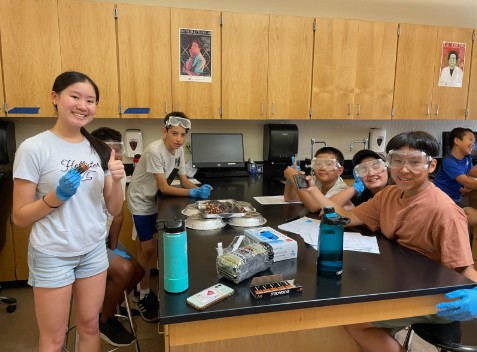High school students can excel in their assessments, AP classes and even dual-enrollment courses – so why don’t they feel ready to enter the workforce?
Workplace readiness is essential to success in the real world, especially having proficiency in soft skills. Interpersonal skills and emotional intelligence are just a few of many attributes that are used across numerous industries, because interaction is inevitable in a professional environment.
According to Education Week, high school students who graduated in 2025 feel unprepared for their future, as a survey completed by those students about post-graduation readiness shows that there is a declining trend in success and confidence in high school graduates.
Too often, high school students graduate and are thrown into the real world, without the necessary support and knowledge to enter the professional environment. Vicky Le, a college student who graduated from West Campus High, said her school focused too much on the technical side of things and not enough on the help students need to develop the soft skills commonly used in a workplace.
“Academic skill sets contribute to the professional work environment, but it really comes down to those interpersonal skills like knowing how to be a strong problem solver and effective communicator,” Le said. “A key skill that my high school failed to adequately impart was to take the initiative – to take the initiative to communicate, to work effectively in a team, to push yourself to start, even if it’s taking the smallest steps.”
High school curriculums are usually focused on academics, including core subjects that range from English to math to science. Some schools offer outside help and opportunities like career readiness and internships. Many students find these opportunities valuable and seek to balance their studies with experience in a real work setting.
Tiffany Wong is a senior at West Campus who takes rigorous courses and has job experience in the restaurant industry. By managing school and work in her life, she understands the significance of how both academics and hands-on job experience have helped her refine her relational skills.
“I think hands-on experiences are important because it goes hand-in-hand with academics,” Wong said. “It’s important to have both in high school because you can apply your academics to the real world and learn valuable skills through interactive programs. That being said, I think there should be more internships at my high school because those experiences set students up for success, not only giving them the opportunity to explore careers but also refine the workplace skills they may lack.”
Employers of youth also promote work experience training like internships because they work directly with teens and prepare them for bigger job opportunities.
Imelda Martinez, director of programs at nonprofit organization HumanBulb, has worked with numerous youth in the past by supporting them through acceleration programs that foster innovation, entrepreneurship and workplace development. With her experience with younger individuals, she has a strong understanding of their needs and strengths – but also their weaknesses.
“A lot of young people struggle with professionalism and communication,” Martinez said. “Text-style writing often shows up in emails or conversations, so it is my job to help them learn to communicate clearly and respectfully, which makes a huge difference in the workplace.”
Martinez agrees with high school students like Wong about the importance of applied experiences, because those programs mimic the work environment, helping young individuals get a taste of real-world expectations.
“Long lectures don’t always connect with students,” Martinez said. “When learning feels real and tied to everyday life or job skills, it motivates youth and helps them aim higher.”
Martinez recognizes these grey areas as faults of different sectors that affect students’ lives. Whether it be school, employers, family or the community, she says everyone contributes in some way to youth workplace development.
“Preparing youth for the workplace is everyone’s job – schools, employers, families and the community,” Martinez said. If we put youth first and give them the support they need, they’ll be ready to lead in the future.”









